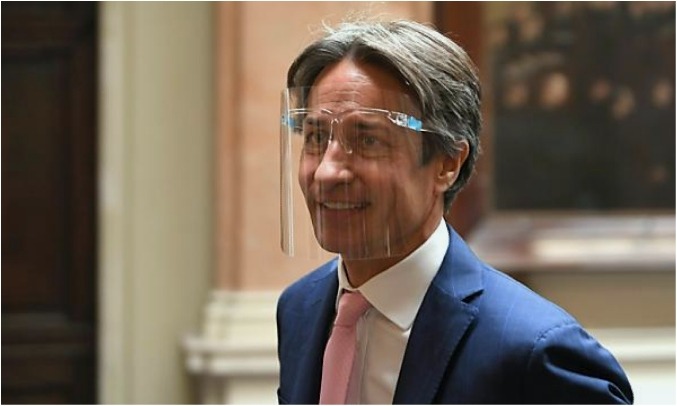Former Austrian Finance Minister Karl-Heinz Grasser Files Complaint of nullity against his conviction in the Buwog case. Grasser was sentenced to eight years in prison by the Vienna State Court in December 2020 for embezzlement, tampering with evidence, and accepting gifts. The case in question was the Buwog scandal, in which Grasser was alleged to have illegally profited from a commission paid in connection with the privatization of federal housing companies, including Buwog.
The written verdict of the court stated that “from his actions, it is evident that the accused holds a particularly indifferent attitude towards legally protected values.” After the verdict was announced, Grasser immediately filed an appeal, and two years and two months later, the legal remedies, namely the nullity complaint and appeal, have been submitted.
The former politician, known by his initials KHG, is taking his last chance to avoid the conviction and his prison sentence by submitting these legal remedies. The Supreme Court (OGH) will now decide on the matter. The attorney general will first draft an opinion on the legal remedies and guide the OGH accordingly. However, the OGH is free in its decision. It can reject the legal remedies, in which case the sentence becomes final, and Grasser will receive a summons to begin his prison sentence. Alternatively, the OGH may follow the legal remedies in full or in part. In that case, the trial may have to be repeated, or parts of the trial may be repeated.
Grasser is contesting the verdict on all levels: formally and substantively. He argues that, due to his role as finance minister in the Buwog privatization, there was no financial damage to the republic. He is also contesting the severity of the sentence via an appeal. Furthermore, Grasser has now submitted a complaint to the Constitutional Court.
A particular feature of the Austrian Code of Criminal Procedure is that the panel decides itself on such an application. In other words, the potentially biased judge decides on himself. Therefore, Grasser submitted an application to replace the chair due to possible bias. The husband of the presiding judge was not impartial towards Grasser, according to the application. The application was rejected, and this is another issue that Grasser is contesting. Grasser’s legal team is arguing that this provision undermines legal standards and is unconstitutional. If the Constitutional Court agrees, the law would have to be changed, and Grasser could then try his luck again due to the new legal situation.
The Buwog scandal is one of the biggest corruption cases in the history of Austria. The case involved the sale of state-owned apartments to private investors in 2004, including Buwog. Grasser was accused of accepting bribes and facilitating the sale of the apartments. He denied the charges and claimed that he was the victim of a political campaign against him.
Before Karl-Heinz Grasser Files Complaint, the verdict in the Buwog case was seen as a victory for the rule of law in Austria, and it was widely reported in the national and international media. The case was viewed as a test for Austria’s anti-corruption measures, and the verdict was seen as a warning to politicians and officials who abuse their power for personal gain. The case also highlighted the close ties between politicians and big business in Austria and raised questions about the country’s democratic institutions.
The appeal and nullity complaint filed by Grasser have once again brought the case to the forefront of public attention. Many people in Austria are closely following the case, and there is a lot of interest in the outcome. The case is seen as a test for the Austrian legal system and its ability to deal with corruption cases involving high-ranking officials. The verdict of the OGH will be eagerly awaited by many in Austria and beyond.

